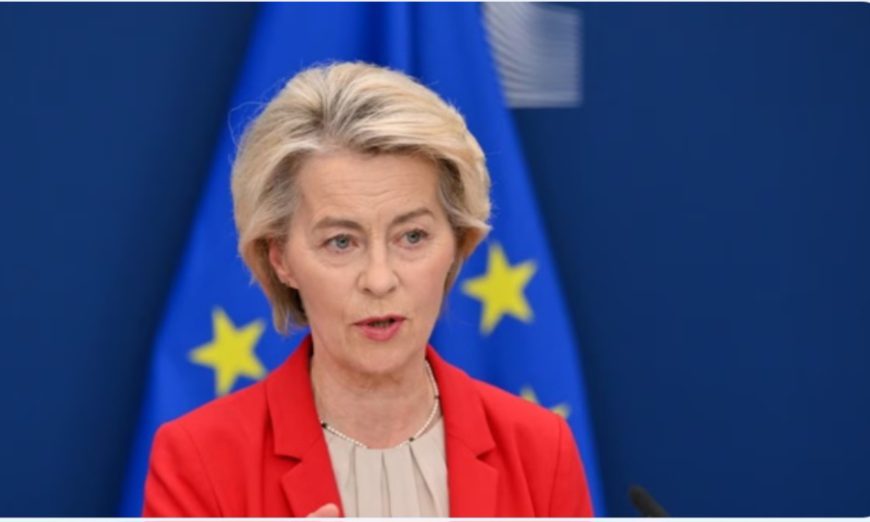The European Union has reached an agreement on an 18th sanctions package against Russia over its conflict in Ukraine, targeting the banking, energy, and military-industrial sectors.
It also includes a new dynamic oil price cap aimed at delivering further blows to Russia’s oil and energy industry. President of the European Commission, Ursula von der Leyen, claimed the sanctions will strike at the heart of Russia’s war machine and will remain in place until the end of the ongoing conflict.
The sanctions package also includes a ban on transactions related to Russia’s Nord Stream gas pipelines and additional restrictions on Russia’s financial sector.
The European Union on Friday (July 18) agreed an 18th package of sanctions against Russia over its war in Ukraine, including measures aimed at dealing further blows to the Russian oil and energy industry.
The package aims to lower the G7’s price cap for buying Russian crude oil to $47.6 per barrel, diplomats told Reuters.
”The EU just approved one of its strongest sanctions packages against Russia to date,” EU foreign policy chief Kaja Kallas said on X.
”We will keep raising the costs, so stopping the aggression becomes the only path forward for Moscow.”
Yet Russia has so far managed to sell most of its oil above the previous price cap as the current mechanism makes it unclear who must police its implementation, and traders doubt the new EU sanctions will significantly disrupt Russian oil trade.
The package also has a ban on transactions related to Russia’s Nord Stream gas pipelines under the Baltic Sea and on Russia’s financial sector.
Kallas said the sanctions also targeted 105 ships in Russia’s ”shadow fleet”, the term used by Western officials for ships that Moscow uses to circumvent oil sanctions, and ”Chinese banks that enable sanctions evasion”.
She did not name the banks. Ukrainian President Volodymyr Zelenskiy called the decision ”essential and timely” as Russia intensifies its air war on Ukrainian cities and villages.

